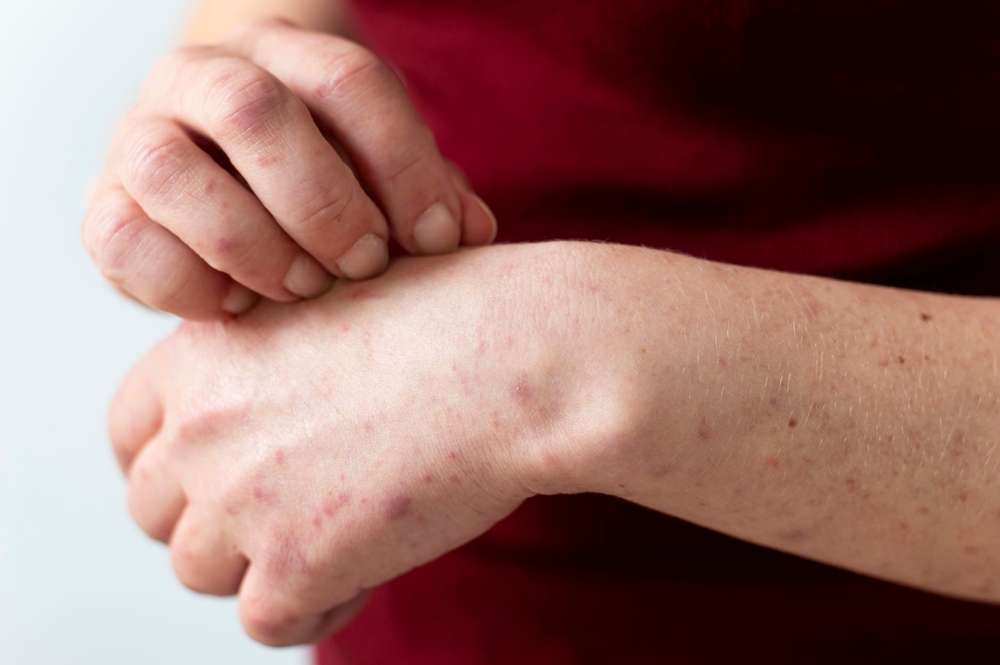Autoimmune Diseases That Trigger Itchy Scalp: Understanding the Connection
An itchy scalp can sometimes be linked to autoimmune diseases like psoriasis, lupus, or alopecia areata. These conditions trigger inflammation and discomfort. Understanding the cause can help in finding the right treatments and improving scalp health.

Common Autoimmune Diseases That Trigger Itchy Scalp
Psoriasis is perhaps the most well-known autoimmune condition affecting the scalp. This chronic inflammatory disorder accelerates skin cell growth, causing thick, silvery-white scales to form on the scalp’s surface. These plaques can be intensely itchy and may bleed when scratched. Scalp psoriasis affects approximately 45-56% of people with psoriasis and can range from mild flaking to severe crusting covering the entire scalp.
Lupus erythematosus, particularly discoid lupus, can manifest on the scalp with red, scaly patches that may become chronic, leading to scarring and permanent hair loss if left untreated. The inflammation triggers an itchy, sometimes painful sensation that can be difficult to relieve with standard treatments.
Alopecia areata occurs when the immune system attacks hair follicles, causing sudden hair loss in round patches. While not always itchy itself, many patients report scalp irritation, tingling, or burning sensations before and during hair loss episodes. The psychological impact of visible hair loss often compounds the physical discomfort of scalp symptoms.
Dermatomyositis, a rare inflammatory disease, can cause a distinctive rash that occasionally affects the scalp, leading to itching, redness, and scaling. The condition often presents with muscle weakness alongside skin manifestations.
Why Autoimmune Conditions Cause Scalp Itching
Autoimmune-related itching stems primarily from inflammation—the body’s immune response gone awry. When immune cells mistakenly target healthy tissues in the scalp, they release inflammatory chemicals like cytokines and histamines. These compounds irritate nerve endings in the skin, triggering the sensation of itching, known medically as pruritus.
The scalp is particularly susceptible to autoimmune activity due to its rich blood supply and high concentration of hair follicles. Each follicle has its own immune microenvironment, providing multiple targets for dysfunctional immune responses. Furthermore, the constant exposure of the scalp to external irritants—from hair products to environmental factors—can exacerbate autoimmune reactions in predisposed individuals.
The chronic nature of autoimmune diseases means that scalp itching often persists or recurs cyclically. This persistence leads to a frustrating itch-scratch cycle where scratching damages the skin barrier, enabling allergens and irritants to penetrate more easily, which in turn intensifies inflammation and itching.
Diagnosing Autoimmune-Related Scalp Irritation
Correctly identifying an autoimmune cause for scalp itching requires careful assessment by healthcare professionals. Dermatologists typically begin with a visual examination of the scalp, noting patterns of inflammation, scaling, or hair loss. They may use dermoscopy (examining the skin with a specialized magnifying instrument) to observe features not visible to the naked eye.
Diagnostic procedures often include skin biopsies, where small samples of affected scalp tissue are examined microscopically to identify characteristic cellular patterns of specific autoimmune conditions. Blood tests measuring autoantibodies and inflammatory markers can further support diagnosis. For instance, antinuclear antibodies (ANA) may be elevated in lupus, while other specific autoantibodies help confirm other conditions.
Differential diagnosis is crucial, as many conditions can cause scalp itching, including fungal infections, contact dermatitis, and seborrheic dermatitis. Sometimes multiple conditions coexist, complicating diagnosis and treatment. Patients may require evaluation from rheumatologists and immunologists alongside dermatologists for comprehensive care.
Treatment Options for Autoimmune Scalp Conditions
Managing autoimmune-related scalp irritation typically involves a multi-faceted approach targeting both symptoms and underlying immune dysfunction. Topical corticosteroids remain a first-line treatment, reducing inflammation and alleviating itching. These come in various potencies and formulations specifically designed for scalp application, including solutions, foams, and shampoos that penetrate through hair to reach the affected skin.
For more severe cases, systemic medications that modulate immune response may be necessary. These include conventional immunosuppressants like methotrexate and cyclosporine, as well as newer biologic therapies targeting specific components of the immune system. Biologics have revolutionized treatment for conditions like psoriasis, offering remarkable improvement for many patients who didn’t respond to traditional therapies.
Light therapy (phototherapy) can effectively treat certain autoimmune scalp conditions, particularly psoriasis. This involves controlled exposure to specific wavelengths of UV light under medical supervision. Newer, targeted phototherapy devices can focus treatment specifically on the scalp area, minimizing exposure to unaffected skin.
Living With and Managing Autoimmune Scalp Irritation
Beyond medical treatments, daily management strategies can significantly improve quality of life. Gentle hair care becomes essential—using lukewarm (not hot) water, pH-balanced shampoos free of harsh detergents, and avoiding aggressive brushing or tight hairstyles that could trigger flares.
Stress management deserves special attention, as psychological stress is a well-documented trigger for many autoimmune conditions. Regular exercise, adequate sleep, meditation, and other relaxation techniques may help reduce flare frequency and severity. Some patients find benefit in working with mental health professionals to develop specific strategies for coping with the chronic nature of their condition.
Support groups, both in-person and online, provide valuable emotional support and practical advice from others experiencing similar challenges. Organizations like the National Psoriasis Foundation and the Lupus Foundation of America offer resources specifically for those dealing with scalp manifestations of these conditions.
When to Seek Medical Attention
Persistent or severe scalp itching warrants professional evaluation, particularly when accompanied by hair loss, visible inflammation, or scaling that doesn’t respond to over-the-counter treatments. Early intervention can prevent complications like secondary infections from scratching and may limit scarring or permanent hair loss in conditions like discoid lupus.
Any sudden change in existing scalp symptoms should prompt medical attention, as this might indicate disease progression or development of a secondary condition. Similarly, new symptoms appearing after starting medications should be reported, as they could represent adverse effects requiring adjustment to the treatment plan.
Building a collaborative relationship with healthcare providers is essential for optimal management of autoimmune scalp conditions. Regular follow-up appointments allow for timely adjustments to treatment plans as the disease evolves or responds to therapy.
This article is for informational purposes only and should not be considered medical advice. Please consult a qualified healthcare professional for personalized guidance and treatment.




